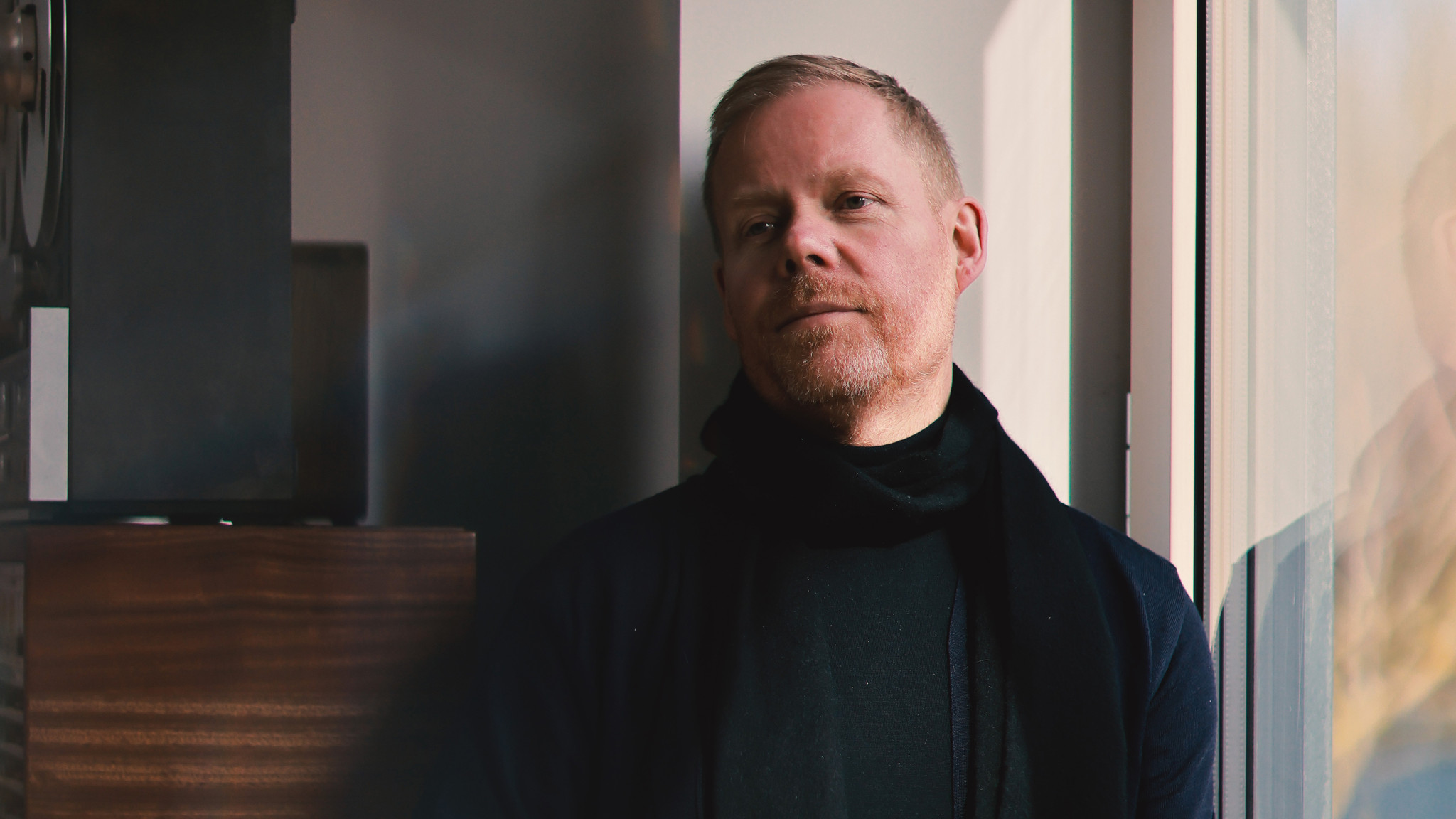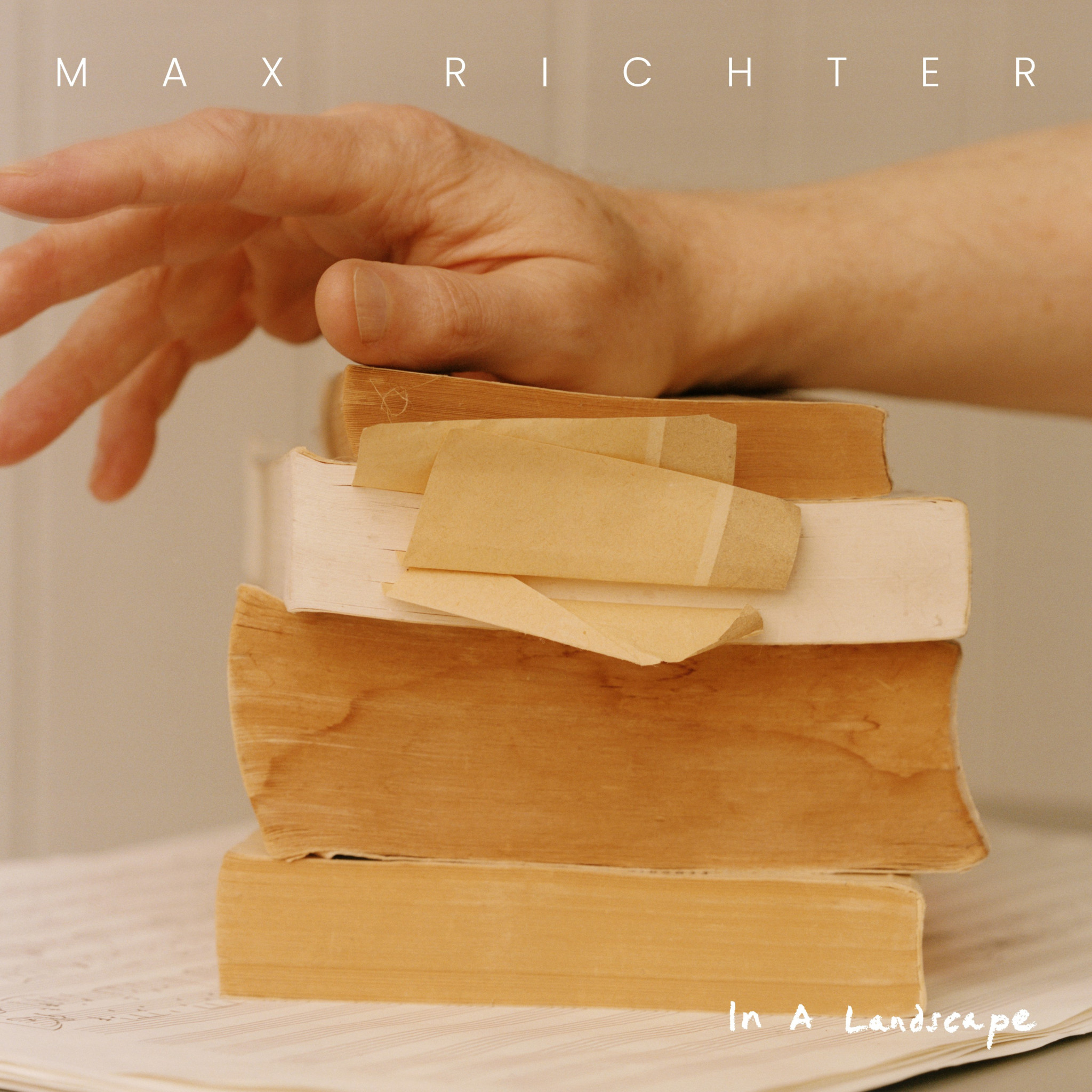But with Max Richter, all there was were a black stage, a dark dress code, lights switched off – only a slender LED column shone a minimalist strip of white-blue light upwards, to the ceiling, to the sky, to the next level. Correction: those seeing the show for the first time will initially mistake the LED column for a row of neon tubes stacked on top of each other. And just when you, as a concert-goer, start to wonder if this minimalist stage lighting might be a little too static, the colour and extent of the supposed neon tubes begin to expand and change slightly – something only LED columns can do. It is then that we realise this is a mind game being played with our attention spans and expectations.
Anyone who works in the field of minimalism – and Max Richter explicitly does so as one of those who taught the neo-classicism genre, a spoilt child of minimalism, how to walk – is virtually doomed to potentiate the effect of the lowest common denominator to which he confines himself on a visual level.
In the case of his live show, this initially meant restraint and reserve in every respect. He performed only two pieces: his most recent release, In a Landscape (2024), and his most famous work, The Blue Notebooks (2003). His live ensemble, consisting of five strings and Max Richter himself on piano, computer, and Fender Rhodes, blended into the emptiness of the stage as if it were an auteur’s theater play in which the performance of a neoclassical, minimalist piece of music was part of a scene.
Fortunately, Max Richter's audience is not left alone in the meditative void into which he plays his ascetically arranged pieces for piano and strings, which often recall aphorisms. At the beginning of the evening, he addresses his listeners: “This music aims to find harmony in an increasingly polarised world.” He then sits with his back to the audience for most of the performance that now follows, the black of his suit merging with the black of the piano and the black box of the stage. This self-imposed, almost monastic-seeming restriction to a few elements is of great theatrical power. Musically, Max Richter meanders in a sleepy, dozing direction in the new compositions of In a Landscape, with simple phrases that glide in a leisurely andante and in uneven, unsteady steps into ever deeper registers. The ten pieces are connected by half-minute interludes, field recordings of urban and natural sounds. After an interval, the very well-known pieces from The Blue Notebooks are performed. Passages from Franz Kafka's Blue Octavo Notebooks are recited over Richter's instrumental miniatures in minor keys. The pieces on The Blue Notebooks are full of counterpoints, even dissonance – a musical reflection of the note of protest that the pieces were intended to express against the imminent Iraq war in 2003.
The stage design, lighting, and dress code of the ensemble break with the usual performance practice of classical music, and both albums are visually encapsulated by the unadorned, spartan stage production. Max Richter has made a strong statement: the staging of instrumental classical (or neo-classical) music in the 21st century can indeed tolerate a carefully stylised, aesthetic interpretation. The stage thus becomes a projection surface for the audience, allowing them to approach the music and the world on a thousand levels. When confronted with the rhizomatic quality of the stage set and the live staging of his music, which challenges the code of classical music, Richter responds with his own manner, which is considered and at the same time mischievous: “A thousand levels, like Guattari’s and Deleuze’s Mille Plateaus? What a charming and very apt observation!”
Words by Max Dax
World Tour
- Dec 24: Philharmonie Luxembourg, Luxembourg - SOLD OUT
- Feb 10–11: Qpac Concert Hall, Brisbane, Australia - SOLD OUT
- Feb 14–15: Sydney Opera House, Sydney, Australia
- Feb 17: Hamer Hall, Melbourne, Australia - SOLD OUT
- Feb 18: Hamer Hall, Melbourne, Australia
- Feb 20: Town Hall, Adelaide, Australia
- Feb 23: Riverside Theatre, Perth, Australia
- Feb 26: Dubai Opera, United Arab Emirates
- April 26: Colonial Theatre, Boston, MA, USA
- April 29: Massey Hall, Toronto, ON, CAN
- May 2: Kennedy Center, Washington, DC, USA
- May 3: Brooklyn Academy Of Music, Brooklyn, NY, USA
- May 4: The Met, Philadelphia, PA, USA
- May 6: Symphony Center, Chicago, IL, USA
- May 8: Fox Theater, Oakland, CA, USA
- May 9: Walt Disney Concert Hall, Los Angeles, CA, USA
- May 10: Benaroya Hall, Seattle, WA, USA



